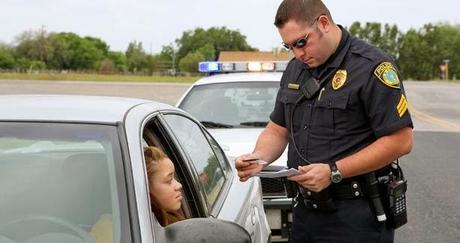 A Shelby County sheriff deputy trampled the U.S. Constitution when he recently conducted a traffic stop to "serve" my wife and me with court papers in a defamation lawsuit that Alabama Republican Rob Riley has filed against us.
A Shelby County sheriff deputy trampled the U.S. Constitution when he recently conducted a traffic stop to "serve" my wife and me with court papers in a defamation lawsuit that Alabama Republican Rob Riley has filed against us.Lt. Mike DeHart probably committed a criminal act when he stopped our vehicle without probable cause to believe a traffic violation had been committed. DeHart compounded his lawless acts by unlawfully prolonging the traffic stop in order to serve us with court papers.
A traffic stop is considered a seizure within the meaning of the Fourth Amendment, which protects individuals from unreasonable searches and seizures. A law-enforcement officer who treats such matters loosely is asking for serious trouble.
DeHart essentially urinated on 45 years of U.S. Supreme Court precedent on the law of traffic stops. In the process, he gave us grounds for a civil-rights lawsuit, a criminal investigation via the U.S. Justice Department and the Alabama Attorney General's Office--and he ensured that "service" in the Riley lawsuit is improper and invalid.
What are the implications? We have grounds to sue DeHart, Sheriff Chris Curry, and anyone else in the department who knowingly participated in, planned, or approved the unconstitutional traffic stop. We likely have grounds, under 42 U.S. Code 1983. to sue Rob Riley and co-plaintiff Liberty Duke, who allege in their lawsuit that our reporting on their extramarital affair is false and defamatory.
We also have grounds to seek an investigation of a criminal conspiracy. The governing criminal law is found at 18 U.S.C. 242 (Deprivation of rights under color of law).
The law on traffic stops in the United States--at both the federal and state levels--largely is based in a Supreme Court case styled Terry v. Ohio, 392 U.S. 1 (1968). Any law-enforcement officer should be well acquainted with the provisions of Terry, plus the hundreds of cases that have grown from it.
Officer DeHart acted as if he had never heard of the Terry case. In fact, DeHart seemed to find his unlawful traffic stop amusing, especially when he handed me the court papers--after his "traffic business" had concluded--and smugly said, "Mr. Shuler, you've been served."
My response? Officer DeHart, you've been unmasked as a lawless thug--and your career might be in jeopardy.
Here are the basics of traffic-stop law, as found in a long line of cases from the Eleventh Circuit, which covers Alabama, Georgia, and Florida:
* The Fourth Amendment protects individuals from unreasonable searches and seizures. U.S. Const. amend. IV. “A traffic stop is a seizure within the meaning of the Fourth Amendment.” United States v. Purcell, 236 F.3d 1274, 1277 (11th Cir., 2001)
* Ordinarily, when a citation or warning has been issued and all record checks have been completed and come back clean, the legitimate investigative purpose of the traffic stop is fulfilled. United States v. Simms, 385 F.3d 1347, 1353 (11th Cir., 2004)
* However, an officer may detain an individual beyond the purposes of the traffic stop if there is “articulable suspicion illegal activity has occurred or is occurring” or if the driver consents. United States v. Pruitt, 174 F.3d 1215, 1220 (11th Cir., 1999).
DeHart claimed I had rolled through a stop sign while making a left-hand turn at a "T intersection" in our neighborhood. I immediately told him I did not roll through the stop sign, and we have shown that DeHart likely could not even see the stop sign in question from his stated location. (For the record, I believe DeHart was waiting for us at or near the North Shelby County Library, where he made the stop. I don't think he was anywhere in the vicinity to see me stop and turn left at the T intersection.)
DeHart had no probable cause to believe a traffic violation had occurred, so his traffic stop amounted to an unreasonable seizure from the outset. But he really stepped in doo-doo by prolonging the stop to hand us court papers. The "legitimate purpose" of the traffic stop had been fulfilled at that point, and DeHart could only detain us further based on "an articulable suspicion illegal activity has occurred or is occurring."
Clearly, Mrs. Schnauzer and I were not engaged in criminal activity in the parking lot of the North Shelby County Library in broad daylight.
That means DeHart went way beyond his lawful boundaries, simply to serve a lawsuit on Rob Riley's behalf. In the process, the deputy probably engaged in a criminal act, and if we have a say in the matter, his law-enforcement career might soon be over.
(To be continued)